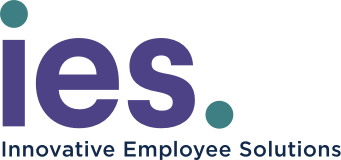By Peter Limone, President & CFO
This blog post is the second in a two-part series about employee time tracking. The prior post explained why some employers are asking their overtime-exempt employees to track time — even though they’re not required to with the Obama administration’s FLSA overtime rule blocked. In this content, we’ll discuss situations in which it doesn’t make business sense to have employees track time.
It’s the big question in today’s business world: Should you have all workers track time?
Just last fall, but what now seems a political lifetime ago, many employers proactively trained their salaried workers to track time in preparation for the Obama administration’s revised Fair Labor Standards Act (FLSA) overtime provision.
Then, in late November, a federal judge blocked implementation of the provision days before its December 1 effective date. But many business leaders continued to have salaried workers track time alongside their hourly peers. Their reasoning? Because the injunction was temporary, those employees would eventually be required by law to do so, anyway.
With the Trump administration in charge, that assumption may no longer hold true, which brings us back to the big question: Does time tracking still make sense? Or are you wasting money by forcing salaried employees to punch the clock?
The time-tracking dilemma
HR teams often assume having employees track time is the safer route. In some respects, that’s true. It can protect from wage-and-hour lawsuits and help employers qualify for tax incentives.
There are, however, situations in which tracking employees’ time does more harm than good:
- Your employees are exempt from current overtime requirements.
Some managers insist that exempt employees report their time worked. If their time is billable or needs to be tracked for a particular project, this makes sense. But outside of those situations, it’s just a productivity drain.
So who, exactly, is exempt from the FLSA wage and overtime rules? The law excludes certain administrative, professional, computer, and outside sales employees. To be sure, there are strict requirements for these exemptions, and you should contact your HR provider to check that your employees qualify.
For qualifying employees, however, enforcing time tracking can actually be detrimental. Many exempt employees perform on-call work, causing them to work beyond 40 hours per week. Tracking activities like catching up on emails is tedious and unlikely to produce useful information.
What’s more, tracking time can actually damage the employee-manager relationship by communicating distrust. Research by Gallup shows that half of employees have left their jobs because of their managers.
- You’re working to improve employee performance.
Time tracking is sometimes used to gather information about underperforming employees, but this does little to improve performance. Documenting every work action won’t get to the root of the employee’s performance problem.
In fact, it can sometimes worsen the problem, particularly if it’s one of time management. Think about it: The employee might expend an additional half hour per day tracking his or her tasks. Over a month, that can add up to dozens of hours.
Instead of micromanaging, supervisors should communicate with and retrain underperforming employees. Work with them to create individualized performance improvement plans, which might include continuing education like online courses or peer mentorship.
- Your employees are paid a flat daily amount.
Some employees, particularly those in education and government, are paid the same, whether they work two or 20 hours per day. While most flat-rate employees still qualify for overtime pay, it likely doesn’t make sense to track time for part-time flat-rate employees.
There’s no doubt time tracking is a tricky question for HR and business leaders. Beyond the requirements of the law — which the Trump administration may soon change — there’s no one-size-fits-all answer.
The best way to make your decision? First, follow the law, and second, seek to maximize employee productivity and trust. These are uncertain times, but you know what’s best for your business.
Peter Limone is the president and CFO of Innovative Employee Solutions, a leading nationwide employer of record that specializes in human relations and payroll services. Founded in 1974 in San Diego, California, IES has grown into one of the city’s largest women-owned businesses and been named one of its “Best Places to Work” for nine years in a row.
Peter joined IES in 2011 as the company’s corporate controller. He was promoted to CFO the following year, and in 2013, he was also named company president. Prior to his work at IES, Peter worked for 3E Company, where he oversaw integration of the company’s accounting, financial, and tax systems. He also served as division vice president of finance and information systems at Follett Software Company.






